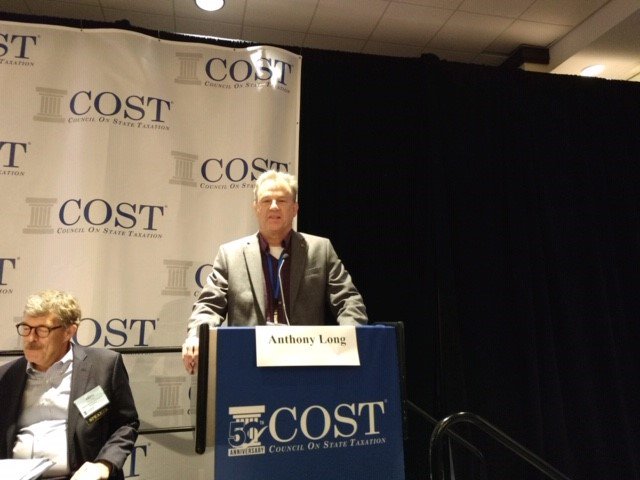Last week I attended the 50th annual meeting of COST held in Washington DC. The conference provided attendees with general sessions that covered: the impact of federal tax reforms on state taxation, trends in state taxation administration, legislative news from various panels of state chambers of commerce and news on technology available to aid in tax compliance. Break out sessions covered a wide range of both federal and state taxation issues facing industry members of COST. Look for a longer article on the 50-year connection between chambers of commerce and COST in the next Ohio Matters.
I was invited to speak on the panel of government relation individuals representing middle America chambers of commerce. The panel included representatives from Kansas, Missouri, Illinois, Minnesota, Iowa, Indiana and Ohio. We provided a summary of the recently concluded state operating budgets, a list of bills or topics to keep an eye on in the next legislative session (or continuing session for states like Ohio with full-time legislatures) and a brief description of the political climate in our states.

Over the course of the three full days of tax discussions and lectures at the conference, or as some may call it — tax nerd heaven, I jotted down a few topics occurring across the country that may impact Ohio’s tax structure, tax administration or tax climate. Although Ohio does not have a corporate income tax, the federal concept of transfer-pricing (allocation of cost and profit to the correct jurisdiction) is popping up at the state and local level with the help of hired economists. This is a topic that could grow into a cottage industry requiring resources to combat reapportionment of income to new jurisdictions both at the state and local levels. The Ohio Chamber will continue to monitor the efforts of the Multistate Commission (MTC) to create joint audits and other cost sharing models to aid state departments of revenue. A second concern raised during the conference is the attempt to shrink the number of tax credits available or in some states the effort to defund the credits. This sounded eerily like the effort to downsize or eliminate the Ohio Business Investment Deduction (BID) during the enactment of House Bill 166 (General Operations Budget). The COST attendees believe there is a need to increase funding of research credits and incentives as their businesses continue to innovate and develop goods and services for their customers. Finally, there is a case pending at the US Supreme Court that could impact the rule of priority for unclaimed funds. This case may impact the final language of House Bill 270 (Unclaimed Funds Reform Act) now pending in the House Finance Committee.
In the end, it was a great week of seeing old friends, meeting new peers at other chambers of commerce and learning about the hot topics in state taxation. Through our membership in COST, the Ohio Chamber will stay up to date on fast moving cases, legislation or new regulatory pronouncements in other states that could find application here in Ohio. If such developments arise, they will be taken to the Ohio Chamber of Commerce Taxation & Public Expenditures Committee for discussion and action.
